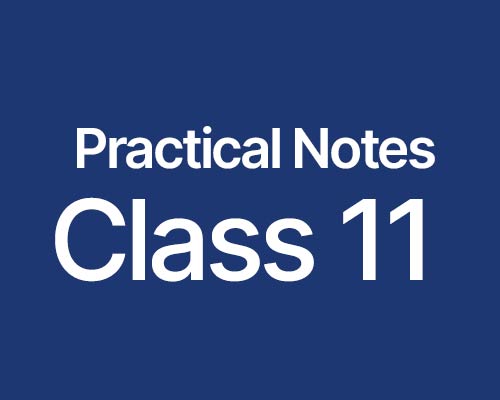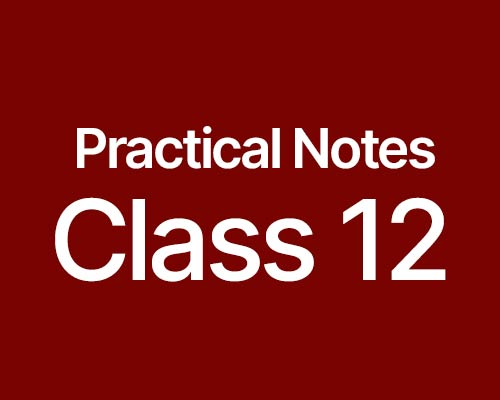The CBSE Practical Notes have been included in the Class 9th, 10th and 12th Science Syllabus to familiarize students with basic laboratory tools and procedures. By watching the changes that occur in front of their eyes while doing the activities, students will gain a greater comprehension of the subject.
They can progressively enhance their basic scientific concepts while practicing things in the lab. Also, their curiosity in science will be awakened, students will learn to ask probing questions and begin to think scientifically.

Class 6 Practical Notes

Class 6 Practical Notes

Class 8 Practical Notes

Class 9 Practical Notes

Class 10 Practical Notes

Class 11 Practical Notes

Class 12 Practical Notes
FAQ
Do students fail in CBSE Class 10 practical examination?
If you finished the exam, there’s a good possibility you will be given a grade based on how well you did. If students skip the exam, however, the school may not offer students any credit. If you really want to earn a perfect score on the practical test, you must completely learn all of the experiments, keep track of the practical files, and study well for the viva.
Are CBSE Practicals hard?
Students do not really need to bother too much about the practical examination; they are usually simple and the majority of the students receive decent grades. Sometimes students receive low grades; it is not because of how difficult the practical was, but rather because they are generally below standard or have poor attendance.
What is the best way to write CBSE Class 10 Science Practical exam?
Every CBSE Class 10 Science Practical examination should be presented impersonally in the past tense. While writing impersonally, personal pronouns should be omitted; such expressions comprise personal terms including we, I, you, they, and he or she, etc.


